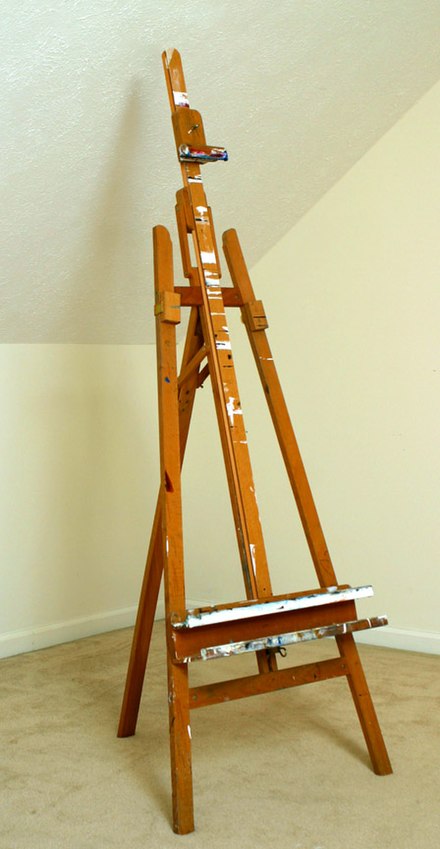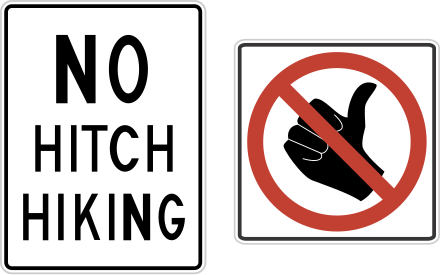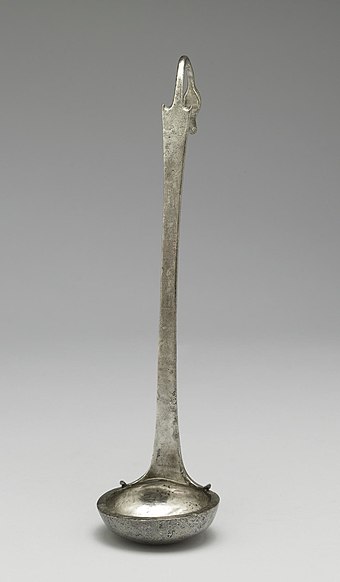Charles Van Doren, who was later a senior editor of Britannica, said the ideal encyclopedia should be radical – it should stop being safe. But if you know anything about the history of Britannica since 1962, it was anything but radical: still a very completely safe, stodgy type of encyclopedia. Wikipedia, on the other hand, begins with a very radical idea, and that’s for all of us to imagine a world in which every single person on the planet is given free access to the sum of all human knowledge.
And that’s what we’re doing. So Wikipedia – you just saw the little demonstration of it – it’s a freely licensed encyclopedia. It’s written by thousands of volunteers all over the world in many, many languages. It’s written using wiki software – which is the type of software he just demonstrated – so anyone can quickly edit and save, and it goes live on the Internet immediately. And everything about Wikipedia is managed by virtually an all-volunteer staff. So when Yochai is talking about new methods of organization, he’s exactly describing Wikipedia. And what I’m going to do today is tell you a little bit more about how it really works on the inside.
So Wikipedia’s owned by the Wikimedia Foundation, which I founded, a nonprofit organization. And our goal, the core aim of the Wikimedia Foundation, is to get a free encyclopedia to every single person on the planet. And so, if you think about what that means, it means a lot more than just building a cool website. We’re really interested in all the issues of the digital divide, poverty worldwide, empowering people everywhere to have the information that they need to make good decisions. And so we’re going to have to do a lot of work that goes beyond just the Internet. And so that’s a big part of why we’ve chosen the free licensing model, because that empowers local entrepreneurs or anyone who wants to – they can take our content and do anything they like with it – you can copy it, redistribute it – and you can do it commercially or non-commercially.
So there’s a lot of opportunities that are going to arise around Wikipedia all over the world. We’re funded by donations from the public, and one of the more interesting things about that is how little money it actually takes to run Wikipedia. So Yochai showed you the graph of what the cost of a printing press was. And I’m going to tell you what the cost of Wikipedia is. But first, I’ll show you how big it is. So we’ve got over 600,000 articles in English. We’ve got two million total articles across many, many different languages. The biggest languages are German, Japanese, French – all the Western-European languages are quite big. But only around one-third of all of our traffic to our web clusters to the English Wikipedia, which is surprising to a lot of people. A lot of people think in a very English-centric way on the Internet, but for us, we’re truly global. We’re in many, many languages. How popular we’ve gotten to be – we’re a top-50 website and we’re more popular than the New York Times. So this is where we get to Yochai’s discussion.
This shows the growth of Wikipedia – we’re the blue line there – and this is the New York Times over there. And what’s interesting about this is the New York Times website is a huge, enormous corporate operation with I have no idea how many hundreds of employees. We have exactly one employee, and that employee is our lead software developer. And he’s only been our employee since January 2005, all the other growth before that … So the servers are managed by a ragtag band of volunteers. All the editing is done by volunteers. And the way that we’re organized is not like any traditional organization you can imagine. People are always asking, “Well, who’s in charge of this?” or “Who does that?” And the answer is: anybody who wants to pitch in. It’s a very unusual and chaotic thing. We’ve got over 90 servers now in three locations. These are managed by volunteer system administrators who are online. I can go online any time of the day or night and see eight to 10 people waiting for me to ask a question or something, anything about the servers. You could never afford to do this in a company. You could never afford to have a standby crew of people 24 hours a day and do what we’re doing at Wikipedia.
So we’re doing around 1.4 billion page views monthly, so it’s really gotten to be a huge thing. And everything is managed by the volunteers. And the total monthly cost for our bandwidth is about 5,000 dollars. And that’s essentially our main cost. We could actually do without the employee. We hired Brian because he was working part-time for two years and full-time at Wikipedia, so we actually hired him, so he could get a life and go to the movies sometimes. So the big question when you’ve got this really chaotic organization is, why isn’t it all rubbish? Why is the website as good as it is?
First of all, how good is it? Well, it’s pretty good. It isn’t perfect, but it’s much better than you would expect, given our completely chaotic model. So when you saw him make a ridiculous edit to the page about me, you think, “Oh, this is obviously just going to degenerate into rubbish.” But when we’ve seen quality tests – and there haven’t been enough of these yet and I’m really encouraging people to do more, comparing Wikipedia to traditional things – we win hands down.
So a German magazine compared German Wikipedia, which is much, much smaller than English, to Microsoft Encarta and to Brockhaus multimedial, and we won across the board. They hired experts to come and look at articles and compare the quality, and we were very pleased with that result.
So a lot of people have heard about the Wikipedia Bush-Kerry controversy. The media has covered this somewhat extensively. It started out with an article in Red Herring. The reporters called me up and they – I mean, I have to say they spelled my name right, but they really wanted to say the Bush-Kerry election is so contentious, it’s tearing apart the Wikipedia community. And so they quote me as saying, “They’re the most contentious in the history of Wikipedia.” What I actually said is they’re not contentious at all. So it’s a slight misquote.
(Laughter)
The articles were edited quite heavily. And it is true that we did have to lock the articles on a couple of occasions. Time magazine recently reported that “Extreme action sometimes has to be taken, and Wales locked the entries on Kerry and Bush for most of 2004.” This came after I told the reporter that we had to lock it for – occasionally a little bit here and there. So the truth in general is that the kinds of controversies that you would probably think we have within the Wikipedia community are not really controversies at all.
Articles on controversial topics are edited a lot, but they don’t cause much controversy within the community. And the reason for this is that most people understand the need for neutrality. The real struggle is not between the right and the left – that’s where most people assume – but it’s between the party of the thoughtful and the party of the jerks. And no side of the political spectrum has a monopoly on either of those qualities. The actual truth about the specific Bush-Kerry incident is that the Bush-Kerry articles were locked less than one percent of the time in 2004, and it wasn’t because they were contentious; it was just because there was routine vandalism – which happens sometimes even on stage …
(Laughter)
Sometimes even reporters have reported to me that they vandalized Wikipedia and were amazed that it was fixed so quickly. And I said – you know, I always say, please don’t do that. That’s not a good thing. So how do we do this? How do we manage the quality control? How does it work?
So there’s a few elements, mostly social policies and some elements of the software. So the biggest and the most important thing is our neutral point of view policy. This is something that I set down, from the very beginning, as a core principle of the community that’s completely not debatable. It’s a social concept of cooperation, so we don’t talk a lot about truth and objectivity. The reason for this is if we say we’re only going to write the “truth” about some topic, that doesn’t do us a damn bit of good of figuring out what to write, because I don’t agree with you about what’s the truth. But we have this jargon term of neutrality, which has its own long history within the community, which basically says, any time there’s a controversial issue, Wikipedia itself should not take a stand on the issue. We should merely report on what reputable parties have said about it. So this neutrality policy is really important for us because it empowers a community that is very diverse to come together and actually get some work done.
So we have very diverse contributors in terms of political, religious, cultural backgrounds. By having this firm neutrality policy, which is non-negotiable from the beginning, we ensure that people can work together and that the entries don’t become simply a war back and forth between the left and the right. If you engage in that type of behavior, you’ll be asked to leave the community.
So, real-time peer review. Every single change on the site goes to the “Recent changes” page. So as soon as he made his change, it went to the “Recent changes” page. That recent changes page was also fed into an IRC channel, which is an Internet chat channel that people are monitoring with various software tools. And people can get RSS feeds – they can get email notifications of changes. And then users can set up their own personal watch list. So my page is on quite a few volunteers’ watch lists, because it is sometimes vandalized. And therefore, what happens is someone will notice the change very quickly, and then they’ll just simply revert the change.
There’s a “new pages feed,” for example, so you can go to a certain page of Wikipedia and see every new page as it’s created. This is really important because a lot of new pages are just garbage that has to be deleted, you know, “ASDFASDF.” But also, that’s some of the most interesting and fun things, some of the new articles. People will start an article on some interesting topic, other people will find that intriguing and jump in and help and make it much better.
So we do have edits by anonymous users, which is one of the most controversial and intriguing things about Wikipedia. So, Chris was able to do his change – he didn’t have to log in or anything; he just went on the website and made a change. But it turns out that only about 18 percent of all the edits to the website are done by anonymous users. And that’s a really important thing to understand: the vast majority of the edits that go on on the website are from a very close-knit community of maybe 600 to 1,000 people who are in constant communication. And we have over 40 IRC channels, 40 mailing lists. All these people know each other. They communicate. We have off-line meetings.
These are the people who are doing the bulk of the site, and they are, in a sense, semi-professionals at what they’re doing. The standards we set for ourselves are equal to or higher than professional standards of quality. We don’t always meet those standards, but that’s what we’re striving for.
And so that tight community is who really cares for the site, and these are some of the smartest people I’ve ever met. It’s my job to say that, but it’s actually true. The type of people who were drawn to writing an encyclopedia for fun tend to be pretty smart people.
The tools and the software: there’s lots of tools that allow us – allow us, meaning the community – to self-monitor and to monitor all the work. This is an example of a page history on “flat Earth,” and you can see some changes that were made. What’s nice about this page is you can immediately take a look at this and see, “OK, I understand now.” When somebody goes and looks at – they see that someone, an anonymous IP number, made an edit to my page. That sounds suspicious. Who is this person? Somebody looks at it – they can immediately see highlighted in red all of the changes that took place – to see, OK, well, these words have changed, things like this. So that’s one tool that we can use to very quickly monitor the history of a page.
Another thing that we do within the community is we leave everything very open-ended. Most of the social rules and the methods of work are left completely open-ended in the software. All of that stuff is just on Wiki pages. And so there’s nothing in the software that enforces the rules. The example I’ve got up here is the Votes for Deletion page. So, I mentioned earlier, people type “ASDFASDF” – it needs to be deleted. Cases like that, the administrators just delete it. There’s no reason to have a big argument about it. But you can imagine there’s a lot of other areas where the question is, is this notable enough to go in an encyclopedia? Is the information verifiable? Is it a hoax? Is it true? Is it what? So we needed a social method for figuring out the answer to this. And so the method that arose organically within the community is the Votes For Deletion page. And in the particular example we have here, it’s a film, “Twisted Issues,” and the first person says, “Now this is supposedly a film. It fails the Google test miserably.” The Google test is you look in Google and see if it’s there, because if something’s not even in Google, it probably doesn’t exist at all. It’s not a perfect rule, but it’s a nice starting point for quick research. So somebody says, “Delete it, please. Delete it – it’s not notable.” And then somebody says, “Wait, I found it. I found it in a book, ‘Film Threat Video Guide: the 20 Underground Films You Must See.’” So the next persons says, “Clean it up.” Somebody says, “I’ve found it on IMDB. Keep, keep, keep.”
And what’s interesting about this is that the software is – these votes are just text typed into a page. This is not really a vote so much as it is a dialogue. Now it is true that at the end of the day, an administrator can go through here and take a look at this and say, “OK, 18 deletes, two keeps: we’ll delete it.” But in other cases, this could be 18 deletes and two keeps, and we would keep it, because if those last two keeps say, “Wait a minute. Nobody else saw this but I found it in a book, and I found a link to a page that describes it, and I’m going to clean it up tomorrow, so please don’t delete it,” then it would survive.
And it also matters who the people are who are voting. Like I say, it’s a tight-knit community. Down here at the bottom, “Keep, real movie,” RickK. RickK is a very famous Wikipedian who does an enormous amount of work with vandalism, hoaxes and votes for deletion. His voice carries a lot of weight within the community because he knows what he’s doing. So how is all this governed? People really want to know about administrators, things like that. So the Wikipedia governance model, the governance of the community, is a very confusing, but workable mix of consensus – meaning we try not to vote on the content of articles, because the majority view is not necessarily neutral – some amount of democracy – all of the administrators – these are the people who have the ability to delete pages. That doesn’t mean that they have the right to delete pages. They still have to follow all the rules – but they’re elected by the community.
Sometimes people – random trolls on the Internet – like to accuse me of handpicking the administrators to bias the content of the encyclopedia. I always laugh at this, because I have no idea how they’re elected, actually. There’s a certain amount of aristocracy. You got a hint of that when I mentioned, like, RickK’s voice would carry a lot more weight than someone we don’t know.
I give this talk sometimes with Angela, who was just re-elected to the board from the community – to the Board of the Foundation, with more than twice the votes of the person who didn’t make it. And I always embarrass her because I say, “Well, Angela, for example, could get away with doing absolutely anything within Wikipedia, because she’s so admired and so powerful.” But the irony is, of course, that Angela can do this because she’s the one person who you know would never, ever break any rules of Wikipedia. And I also like to say she’s the only person who actually knows all the rules of Wikipedia, so … And then there’s monarchy, and that’s my role on the community, so …
(Laughter)
I was describing this in Berlin once, and the next day in the newspaper the headline said, “I am the Queen of England.”
(Laughter)
And that’s not exactly what I said, but –
(Laughter)
the point is my role in the community – Within the free software world, there’s been a long-standing tradition of the “benevolent dictator” model. So if you look at most of the major free software projects, they have one single person in charge who everyone agrees is the benevolent dictator. Well, I don’t like the term “benevolent dictator,” and I don’t think that it’s my job or my role in the world of ideas to be the dictator of the future of all human knowledge compiled by the world. It just isn’t appropriate. But there is a need still for a certain amount of monarchy, a certain amount of – sometimes we have to make a decision and we don’t want to get bogged down too heavily in formal decision-making processes.
So as an example of how this can be important: we recently had a situation where a neo-Nazi website discovered Wikipedia, and they said, “Oh, well, this is horrible, this Jewish conspiracy of a website, and we’re going to get certain articles deleted that we don’t like. And we see they have a voting process, so we’re going to send – we have 40,000 members and we’re going to send them over and they’re all going to vote and get these pages deleted.” Well, they managed to get 18 people to show up. That’s neo-Nazi math for you. They always think they’ve got 40,000 members when they’ve got 18. But they managed to get 18 people to come and vote in a fairly absurd way to delete a perfectly valid article. Of course, the vote ended up being about 85 to 18, so there was no real danger to our democratic processes. On the other hand, people said, “But what are we going to do? I mean, this could happen. What if some group gets really seriously organized and comes in and wants to vote?” Then I said, “Well, fuck it, we’ll just change the rules.” That’s my job in the community: to say we won’t allow our openness and freedom to undermine the quality of the content. And so, as long as people trust me in my role, then that’s a valid place for me. Of course, because of the free licensing, if I do a bad job, the volunteers are more than happy to take and leave – I can’t tell anyone what to do.
So the final point here is that to understand how Wikipedia works, it’s important to understand that our wiki model is the way we work, but we are not fanatical web anarchists. In fact, we’re very flexible about the social methodology, because ultimately, the passion of the community is for the quality of the work, not necessarily for the process that we use to generate it.
Thank you.
(Applause)
Ben Saunders: Yeah, hi, Ben Saunders. Jimmy, you mentioned impartiality being a key to Wikipedia’s success. It strikes me that much of the textbooks that are used to educate our children are inherently biased. Have you found Wikipedia being used by teachers and how do you see Wikipedia changing education?
Jimmy Wales: Yeah, so, a lot of teachers are beginning to use Wikipedia. There’s a media storyline about Wikipedia, which I think is false. It builds on the storyline of bloggers versus newspapers. And the storyline is, there’s this crazy thing, Wikipedia, but academics hate it and teachers hate it. And that turns out to not be true. The last time I got an email from a journalist saying, “Why do academics hate Wikipedia?” I sent it from my Harvard email address because I was recently appointed a fellow there. And I said, “Well, they don’t all hate it.”
(Laughter)
But I think there’s going to be huge impacts. And we actually have a project that I’m personally really excited about, which is the Wikibooks project, which is an effort to create textbooks in all the languages. And that’s a much bigger project. It’s going to take 20 years or so to come to fruition.
But part of that is to fulfill our mission of giving an encyclopedia to every single person on the planet. We don’t mean we’re going to Spam them with AOL-style CDs. We mean we’re going to give them a tool that they can use. And for a lot of people in the world, if I give you an encyclopedia that’s written at a university level, it doesn’t do you any good without a whole host of literacy materials to build you up to the point where you can actually use it. The Wikibooks project is an effort to do that. And I think that we’re going to see – it may not even come from us; there’s all kinds of innovation going on. But freely licensed textbooks are the next big thing in education.







































